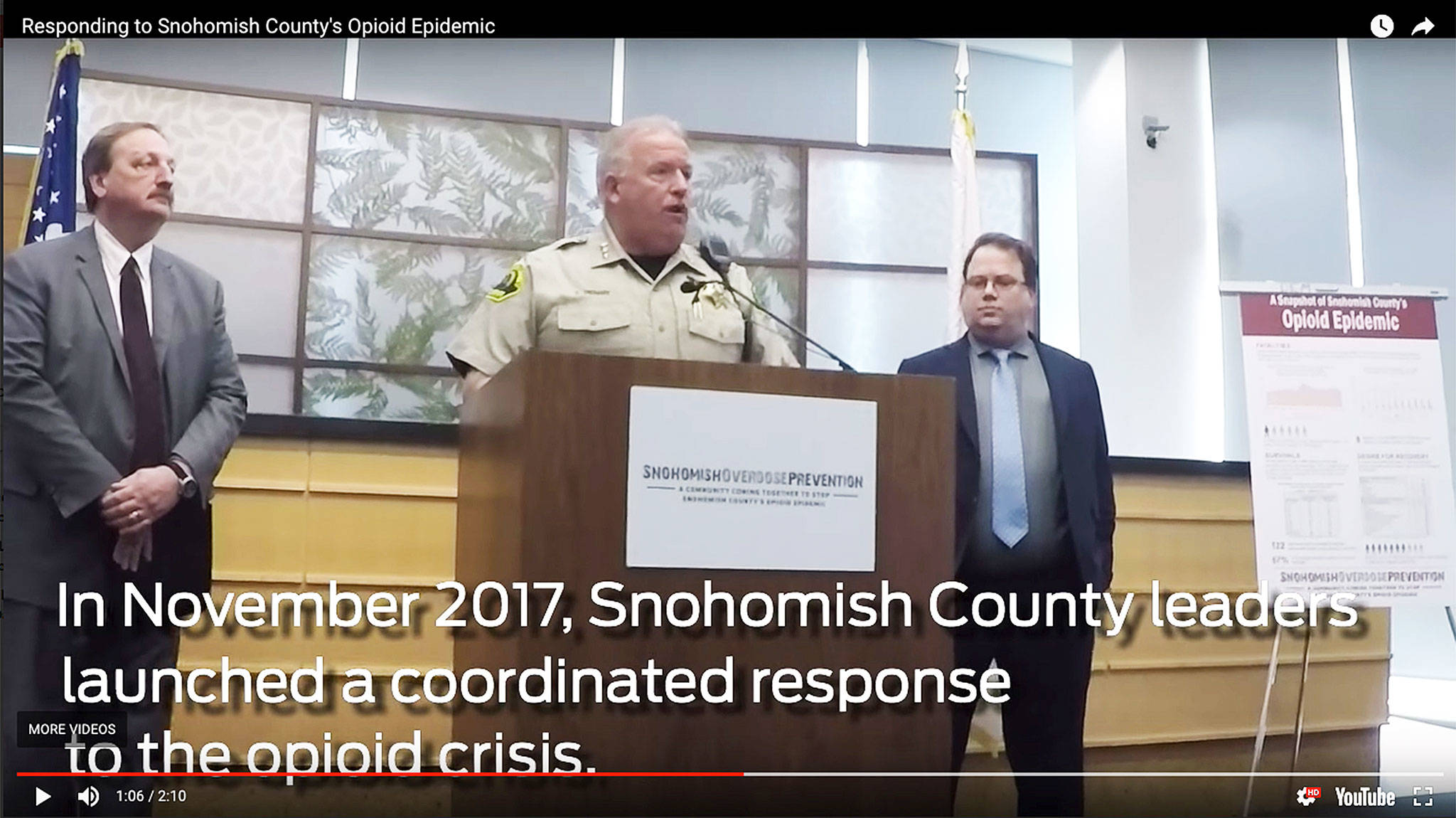EVERETT — What is Snohomish County doing to a fight opioid addiction and overdoses? The question comes up often, and like everything else when it comes to addiction, the answer can get complicated.
So the sheriff’s office is trying out new ways to clearly explain the county’s efforts, in bite-sized videos on social media.
One short clip picked up about 13,000 views on Facebook and YouTube in recent weeks. The two-minute video was shot, edited and produced by Shari Ireton, spokeswoman for the sheriff’s office. She would be the first to admit that, OK, she’s not an expert filmmaker. But if it pushes people to talk and care about those affected by addiction, then the video is doing its job. More are in the works, Ireton said.
Over the past year, as part of her regular duties, Ireton ended up with what turned into B-roll for this piece. “The opioid crisis in Snohomish County impacts everybody … ” say the opening subtitles, over a shot of drug needles scattered on asphalt. The next scene shows deputies talking to people who are hidden by the blue tarp of a homeless camp (“… from urban areas … ”), followed by the squalor of a house occupied by drug users in Granite Falls (“… to small towns.”)
State data from recent years showed almost 1 in 5 heroin-related deaths in the state happened in Snohomish County. (About 1 in 10 Washingtonians live here.) Many users became addicted through prescription painkillers, and turned to street dealers when their supply ran out, according to the Snohomish Health District.
One scene of Ireton’s video depicts a free public demonstration by the county’s Human Services, on how to administer naloxone, a drug that reverses overdoses. More than 100 lives in Snohomish County have been saved by police carrying the drug, since a countywide program began in 2015.
Another clip shows human faces of addiction: a couple who lost custody of their kids due to drug abuse and homelessness. They’d been living in a car at rest areas around Snohomish County. Over and over, Ireton said, they credited the Office of Neighborhoods — a homeless outreach program led by the sheriff’s office — with helping to get their lives back on track.
Now they’ve gone through rehab, they have work and they can see their children again. At one point in their on-camera interview, Ireton said, the man lamented how he’d offered to take a coworker’s shift that week, without realizing his child had a soccer game. He didn’t know if he could do both. A sheriff’s deputy chimed in: Considering where you were two years ago, isn’t it kind of amazing that now your most pressing concern is this soccer game? Isn’t it kind of nice to be able to worry about being a good dad?
Caleb Hutton: 425-339-3454; chutton@heraldnet.com. Twitter: @snocaleb.
Talk to us
> Give us your news tips.
> Send us a letter to the editor.
> More Herald contact information.

























